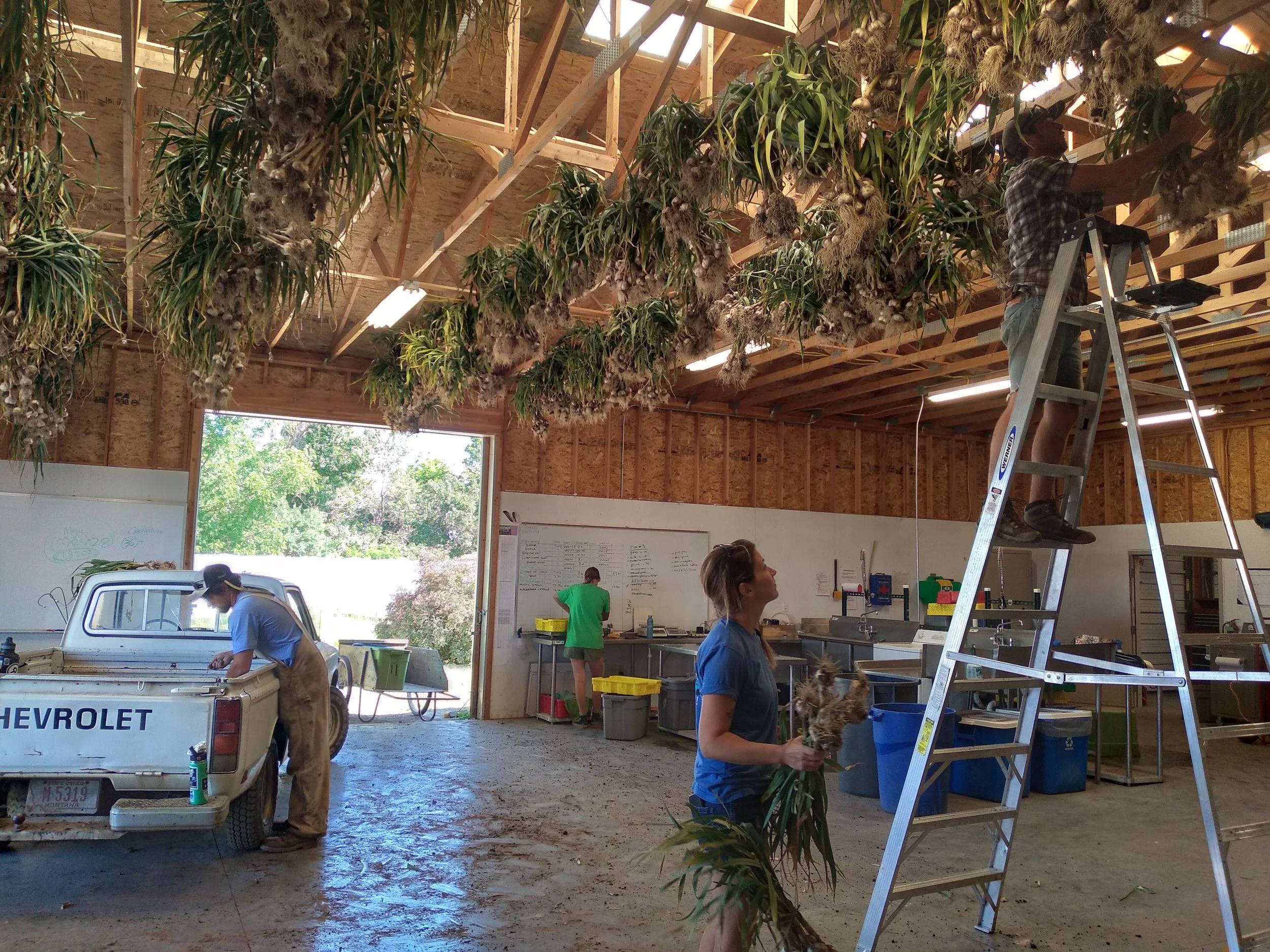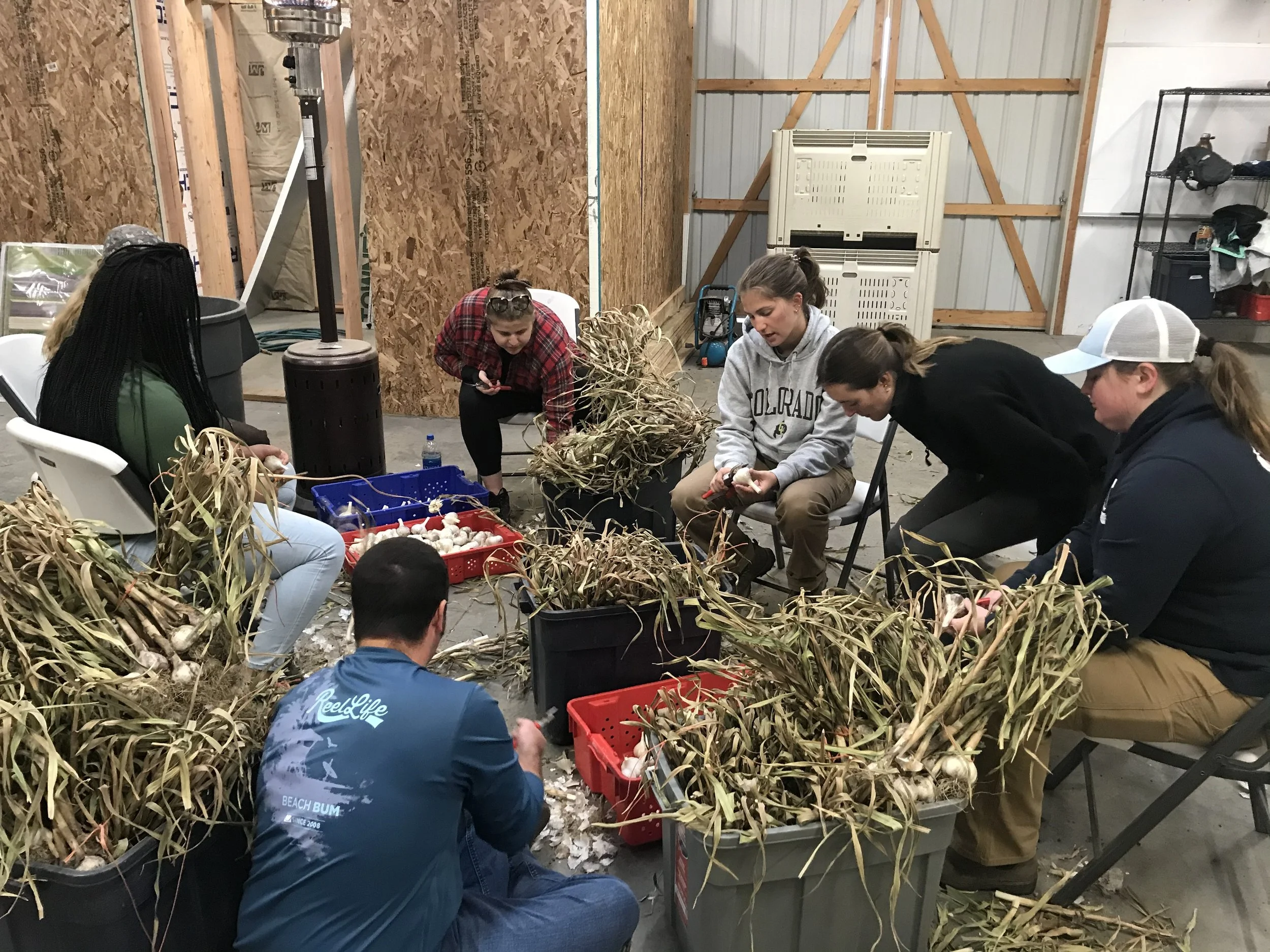As part of Montana State University’s sustainable food program, Towne’s Harvest Garden teaches students how to grow and sell eco-friendly produce. Through hands-on experience, future farmers are empowered with the knowledge to cultivate diverse foods, build community, and thus help create a healthier, more resilient food system.
Below is an interview with THG’s Director, Macdonald Burgess. Thank you, Mac, for all you do!
Q: What issue(s) are you seeking to solve, and in what ways are you working to solve them?
Most people would benefit from eating more vegetables. There are many obstacles to this: vegetables are expensive, perishable, and sometimes don’t taste good if overcooked, grown out of season, harvested unripe, or bred for shipping rather than eating quality. Vegetables require skill to prepare well and require knowledge of their seasons to choose well.
Our modern food system brings us a huge variety of vegetables from around the world with little regards to season, and mostly pretty good quality, but has most people indifferent to where their food comes from or the true costs of its production. Our local food system can often bring us better quality, if sometimes for a short season, possibly with lower environmental impact, but lacks the economies of scale to compete on price.
We could do better if there were more farmers and farm workers working on making small-scale farming for local consumption efficient, productive, and sustainable. We also need consumers – from institutions, restaurants, to home chefs who know how and when to seek out the best produce from our local food system and are willing to pay to support the honest work of farming.
Q: What do you find most challenging in your work?
Growing vegetables is a lot of work, and we take for granted the people who do that work. Increasingly, the vegetables we buy at the store are the product of a system that replaces that work with mechanization, leading to centralization that compromises culinary and nutritional quality and externalizes a lot of costs to the environment.
The question of sustainability in food systems is really complex. There are tradeoffs among labor, land use, plastic use, fossil fuel use, and water use that don’t have simple answers. Getting more young people in tune with these complex issues is a start for addressing huge, interconnected challenges of climate change, social justice, and food security.
Q: What do you find most rewarding?
I enjoy seeing people enjoy a healthy meal cooked with love from locally produced food. We produce a great deal of food at our student-run organic farm. I love seeing students, who might not otherwise be able to afford to eat well, take veggies home and create their own meals. We also put a lot of really good food into the hands of folks who wouldn’t be able to afford it through our partnership with the Gallatin Valley Food Bank. Ultimately, though, we’re training and inspiring farmers, food system workers, and most importantly informed consumers.
Q: What do you wish people knew more about the issue(s) you seek to solve?
Some of the best vegetables from our local food system are at their prime for eating through the winter! Carrots, Beets, Onions, Potatoes, Garlic, and Winter Squash (especially winter squash) grow very well here and can be stored through the winter just fine- in fact some of them improve in quality in storage.
Q: How can people support your work?
Go to farmers markets and support farmers, Join a CSA, support restaurants that purchase local foods, and start a garden. Volunteer to help out on a farm. Follow local farmers on social media to keep up on what is in season now and what they are eating.
Q: How do you create joy and hope in your life during the ecological crisis?
Everybody eats. Eating well is powerful on so many different levels, and not just with regards to nutrition. Taking time to cook, enjoying good food in the company of friends, and sharing our food experiences teaches us to slow down, enjoy our local bounty, and appreciate the bounty of the places we call home.





